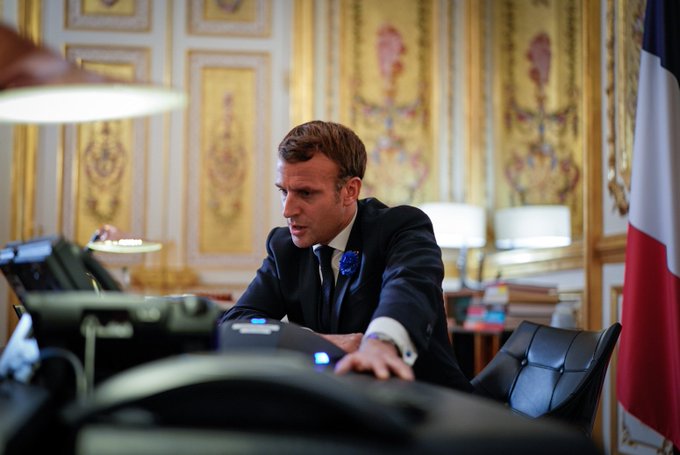France Must Respect Wishes of Muslims
Anti-France protests have broken out in many countries as the president of France, Emmanuel Macron, defended depictions of the Prophet Muhammad in magazines and classrooms. Although these drawings fall under the right to free speech or freedom of expression, depicting the Prophet Muhammad has long been discouraged among Muslims. The right to produce these images is something the French are not willing to give up, but at what cost? After many deaths, injuries and protests, the simplest way to attain peace is to avoid depictions of the Prophet Muhammad, out of respect to Muslim worshippers, but that is not the direction France is headed.
Tensions rose in early September, when the popular satirical magazine Charlie Hebdo republished images of the Prophet Muhammad. Many Muslim countries protested and boycotted French goods, and Islamic extremists committed multiple murders. Samuel Paty, a public school teacher, was beheaded by a student who was offended by the depictions of the Prophet Muhammad shown during a class on free speech.
In no way are these killings warranted, and they have been denounced by Muslims around the world, including Sheikh Yasir Qadhi, a Muslim scholar, who said, “Violence as a response is clearly wrong and disproportionate.” However, he added, “In the context of Europe, where in many countries Muslims feel like they are besieged, these images are not seen as criticism but as bullying.” Images of the Prophet Muhammad usually depict him as foolish or inciting violence. In 2006 for example, a Danish cartoonist depicted the prophet wearing a bomb as a turban with the fuse ignited.
Many French officials have defended the right to republish such cartoons, while some have even gone a step further, such as allowing the distribution of a booklet to high school students including images of the prophet “to defend the values of the Republic.” In doing so, France has made the divide between themselves and Muslims ever wider.
The murder of Samuel Paty is in no way justifiable, but as France grows more and more ethnically diverse, it is questionable whether showing such depictions in the name of free speech is worth the unrest it is causing. President Macron’s defense of such depictions has led to protests outside of France, including a boycott of French goods by countries like Kuwait and Qatar. President Recep Tayyip Erdogan of Turkey even questioned the mental health of the French president.
The president of France made a statement in which he outlined the values of France, saying, “Contrary to much of what I have heard and seen on social media in recent days, our country has no problem with any religion. All of these religions are freely practiced on this land. There is no stigmatization: France is committed to peace and to live together.” The right to freedom of expression and speech is something France does not want to give up as part of their democracy.
However, the solution may not be banning the depictions of the Prophet Muhammad, as this would likely create more problems than it would solve. Rather, the solution may lie in teaching French citizens to acknowledge and respect the requests of the Islamic faith.
Macron’s response to the incidents has been too harsh to Muslims. In agreeing that these killings and stabbings should be condemned, one must also acknowledge that they could have been avoided if depictions of the Prophet Muhammad were not shown. Publications should not be banned from producing such images altogether, as this directly contradicts the right to freedom of expression, and would likely create more problems than it would solve. However, they must also recognize that in creating or republishing such depictions, they are inciting violence from extremists that would act out in violence after seeing depictions of the Prophet Muhammad.
Cory Bork, FCRH ’23, is a communications and culture major from Robbinsville, N.J.

Cory Bork is a senior majoring in communication and culture with a minor in marketing. Beginning in his sophomore year, Cory wrote articles extensively...










































































































































































































